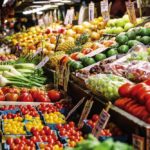Western Producer reporter Barry Wilson analyzes how the world trading partners are staking out their positions as they head into the World Trade Organization galks. He files from Europe.
ROME, Italy – Canada’s agriculture minister Lyle Vanclief has predicted the agriculture negotiations in the new World Trade Organization talks will be much tougher than last time, when they dragged on for seven years and almost scuttled a broader trade deal.
“I think this round of the WTO is going to make the Uruguay round look like a piece of cake,” he said in an interview.
Read Also

Powdery mildew can be combine fire risk
Dust from powdery mildew can cause fires in combines.
“On agriculture, I think it is going to be tough, tough, tough.”
As if to illustrate the point, the main combatants lining up to do battle over trade rules used their appearances at a United Nations Food and Agriculture Organization meeting to promote their goals.
The issue at the meeting was supposed to be agricultural development and the fight to reduce world hunger.
All sides used their five minutes at the podium to promote their goals as the way to combat hunger.
United States agriculture secretary Dan Glickman said only a “truly free and fair trade regime” will allow poor countries to prosper. “We need an open trading system.”
Australian agriculture minister Warren Truss suggested poor countries are poor because inappropriate policies in other countries keep them from competing fairly on world markets. Growth and prosperity requires “the full participation of all countries, including developing and least developed countries, in the world economy and trading systems.”
Finnish agriculture minister Kalevi Hemila offered the opposing European Union view that future prosperity and food production growth is linked to the idea that governments should be able to support their farmers to keep them on the land.
“Multi-functionality has become one of the key words in the agriculture policy debate,” he said.
Hemila said groundwork for agricultural development coming out of the next trade talks “has been tied to the issue of non-trade concerns.”Canada added its own spin when Vanclief told the FAO meeting that Canadian farmers have been hurt by production and trade-distorting subsidies in other countries.
“They hinder, rather than help, our common cause of increased food security,” he said.
“Farmers should not have to compete against the treasuries of foreign governments.”
In a later interview, Vanclief acknowledged that finding agreement on such views is easier said than done.
“Those who want things aren’t going to give up easily and those that have things aren’t going to give them up very easily either,” he said.
“And we’ve got some of both. We’re not going to back off on supply management and we’re not going to back off on our views of export subsidies.”
For related stories see pages 21-21.
















